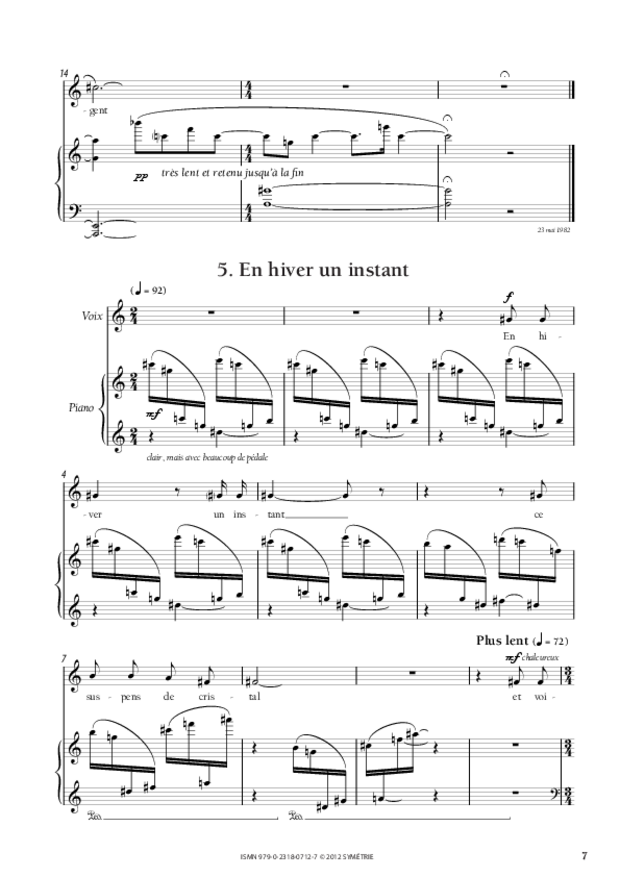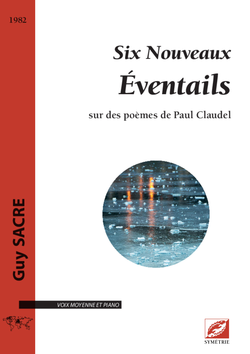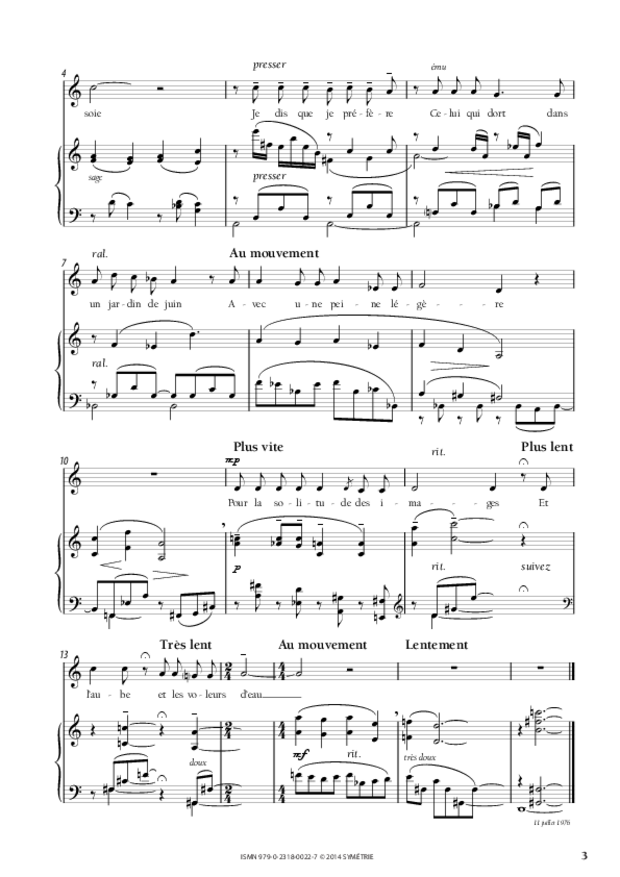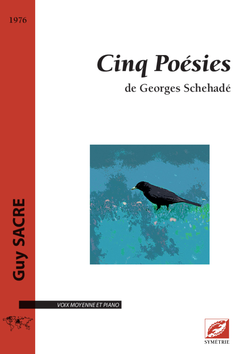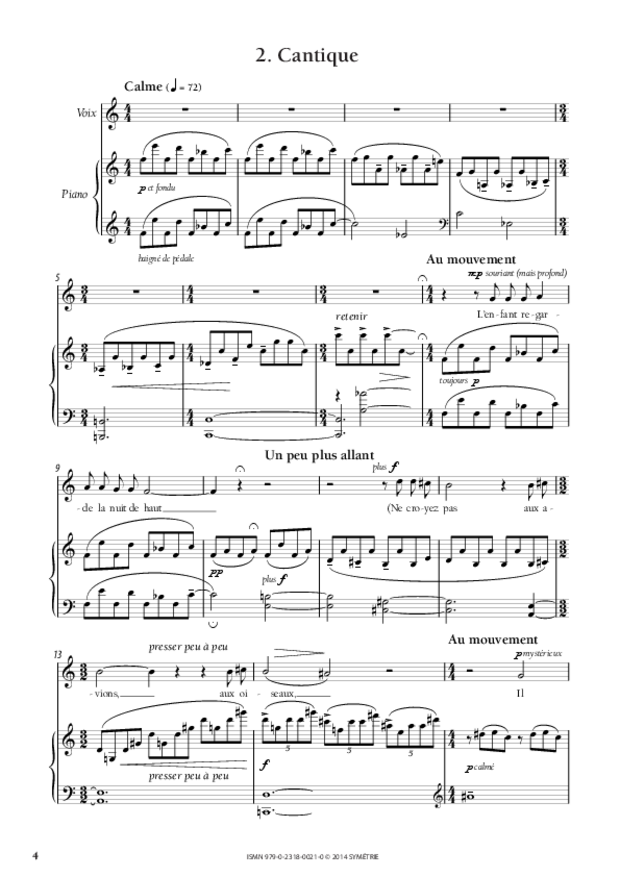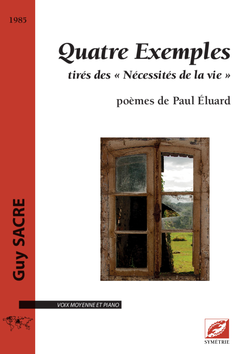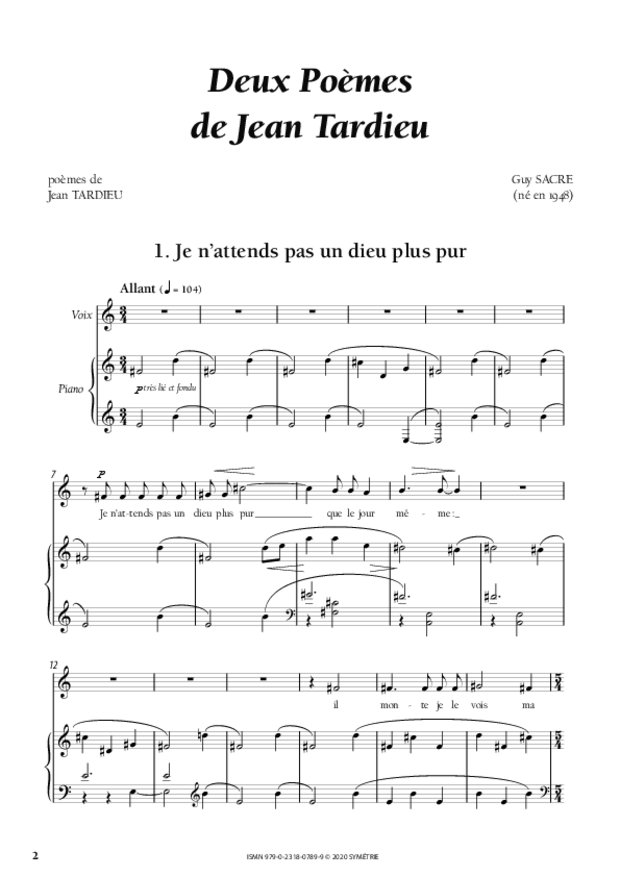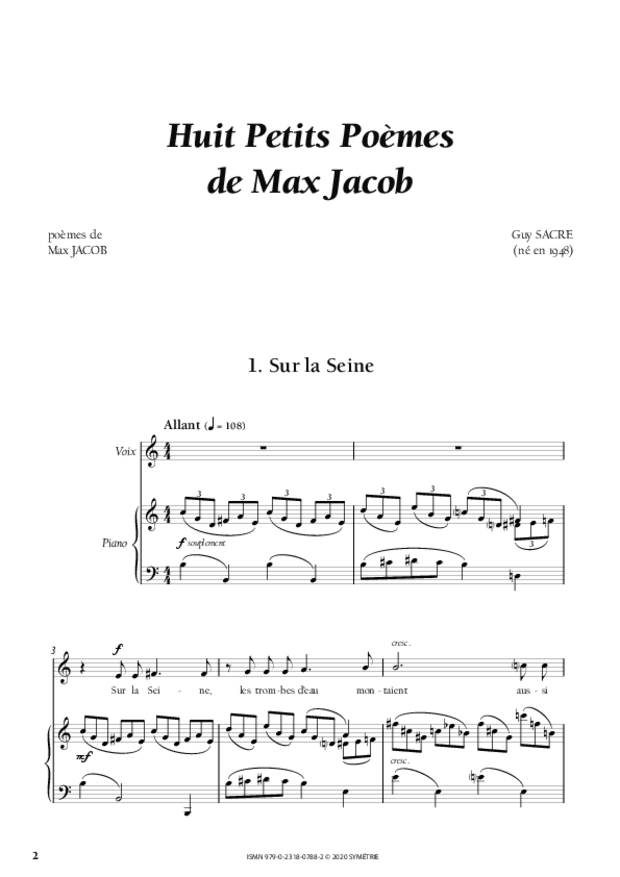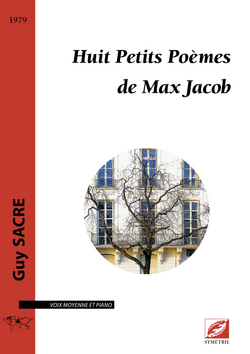Soliloquy: ‘speak alone’. But to speak alone is a delusion. Even to the double, the ‘doppelgänger’, that we take with us wherever we go (for eternity, alas!), words say too much, and never enough; reflection is cancelled out by the encounter with fragments of mirror, the particles of consciousness that have resisted all attacks from outside, only to yield to the tenacity of the close enemy. To sing alone, however, makes sense. Children do it, for example, using their own voice as a comfort and reassurance when sorrow or dismay proves too much for their young lives. Singing—and therein lies its boon—is always pure, free from images, absolved of thought, be it a cry or a whisper. If it conveys a state of mind, it does not enumerate the circumstances; it is perhaps the only valid form of ‘communication’ that does not disturb other people, rejects anecdote, and leaves in the bed of the river of Time the vain scruples—the ‘grit’, the ‘sharp stones’—of everyday life.
In solitudine cordis et secreto silentii, to borrow the words of St Bernard of Clervaux. But does silence still have its secret and the heart its solitude, if one and the other are conveyed by words on a page, even by notes on a stave? Thereby the song is tamed, confined, converted into signs, turned into writing. Now we never write for ourselves alone, and anyone who claims to do so, solitude or no solitude, is not telling the truth. But there remains, for the time it lasted, the spiritual value of the exercise (here, I am thinking of Ignatius, a saint who is even closer to me) and the benefit it has in our lives consumed by noise and agitation.
Contes, Soliloques, Exercices: I feel that these three sets, spread over a decade, form a kind of ‘moral’ trilogy, which is why they are published here together. But the twenty-one pieces they contain have their counterparts almost everywhere in my music: in a prelude, a children’s song, a sonatine or serenade movement, and so on. It is a question of style, even more than of mood. I recognise myself in a language that refuses brilliant timbres and virtuosic figures, and which questions the instrument only in the expectation of hearing a fraternal—and comforting—response.
Guy Sacre
(translation Mary Pardoe)
